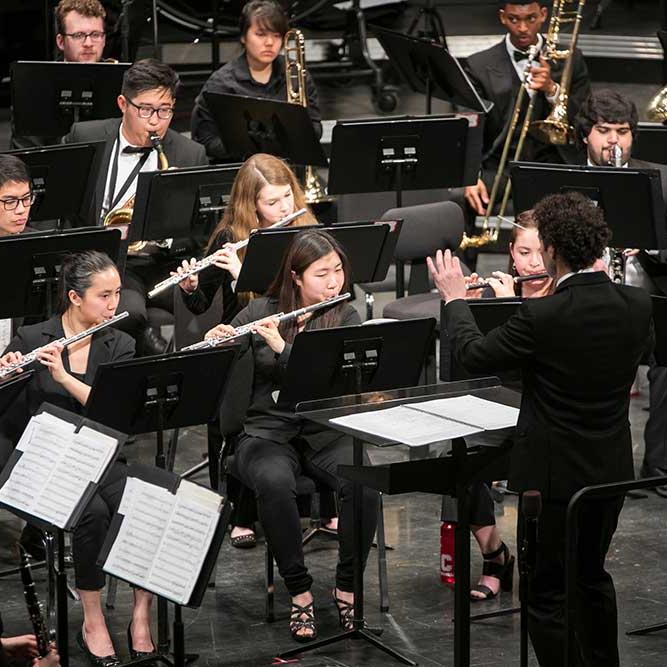As a music major, you’ll carry the study of music to an advanced level through the integration of performance, history, music theory and composition. Whether oriented toward eventual graduate or professional work in music or a more general approach, you can choose among courses from medieval chant to hip-hop, from classical-era European music to the musics of Latin America and Africa, from electroacoustic music to musical systems from around the globe. We also offer opportunities for performers through individual instruction in piano, violin, voice, percussion and other instruments, as well as through participation in our diverse instrumental ensembles.
Sample classes
- Hip Hop from a Global Perspective
- Thinking with Music
- Bach and Handel
- Computers in Music Performance
Outcomes
All information below is based on the 2022 First-Destination Post-Graduate Survey. Lists are not exhaustive; rather, they are a sampling of the data. If you would like more information, please email as_careers@cornell.edu
What can you do with a degree in Music?
Graduate school:
In 2022, many music majors embarked on graduate school journeys. They pursued various advanced degrees, with the majority dedicated to their PhD, JD, and MA. Their graduate field interest ranges from music to clinical psychology and economics.
These ambitious individuals have chosen to continue their education at prestigious institutions like the California Institute of the Arts, Duke University, London School of Economics and Political Science, and the Royal Conservatoire of Scotland.
Employment:
The majority of music graduates entered sectors in technology, consulting, education, agriculture, and communications/media.
Where 2022 Music Graduates Work
| Employer | Job Titles |
|---|---|
| Amazon Web Services | Associate Account Executive |
| Bantam Tools | Software Engineer |
| Creative Artists Agency | Clerk |
| Marketing Specialist | |
| Weil, Gotshal, & Manges LLP | Litigation Paralegal |
| Wells Fargo | Securities Operations Service Specialist |
